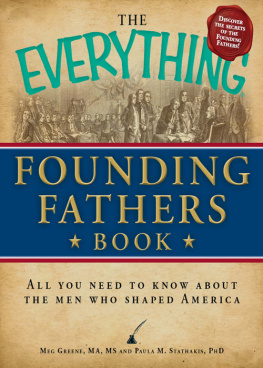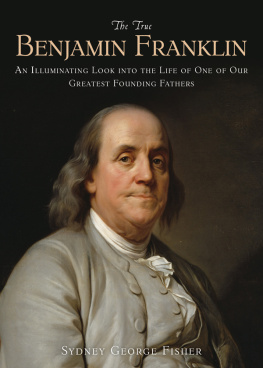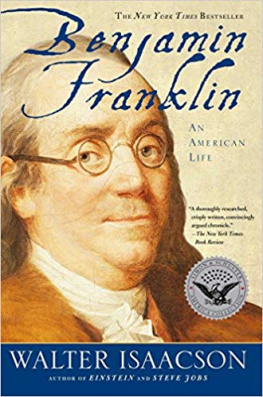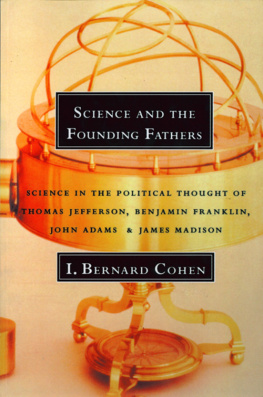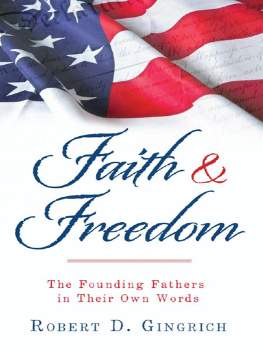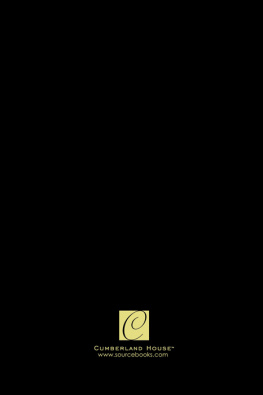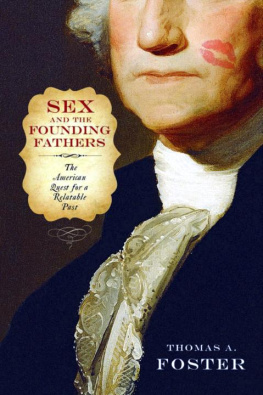Revolutionary Medicine
Thank you for buying this ebook, published by NYU Press.
Sign up for our e-newsletters to receive information about forthcoming books, special discounts, and more!
Sign Up!
About NYU Press
A publisher of original scholarship since its founding in 1916, New York University Press Produces more than 100 new books each year, with a backlist of 3,000 titles in print. Working across the humanities and social sciences, NYU Press has award-winning lists in sociology, law, cultural and American studies, religion, American history, anthropology, politics, criminology, media and communication, literary studies, and psychology.
Revolutionary Medicine
The Founding Fathers and Mothers in Sickness and in Health
JEANNE E. ABRAMS

NEW YORK UNIVERSITY PRESS
New York and London
www.nyupress.org
2013 by New York University
All rights reserved
References to Internet websites (URLs) were accurate at the time of writing. Neither the author nor New York University Press is responsible for URLs that may have expired or changed since the manuscript was prepared.
LIBRARY OF CONGRESS CATALOGING-IN-PUBLICATION DATA
Abrams, Jeanne E., 1951
Revolutionary medicine : the Founding Fathers and mothers in sickness and in health /
Jeanne E. Abrams.
p. cm.
Includes bibliographical references and index.
ISBN 978-0-8147-8919-3 (cl : alk. paper)
1. Founding Fathers of the United States. 2. Public healthPhilosophy. 3. Public health
United StatesHistory18th century. 4. Public healthUnited StatesHistory19th
century. 5. Medical careUnited StatesHistory18th century. 6. Medical careUnited
StatesHistory19th century. I. Title.
E302.5.A37 2013
973.2--dc23
2013010673
New York University Press books are printed on acid-free paper, and their binding materials are chosen for strength and durability. We strive to use environmentally responsible suppliers and materials to the greatest extent possible in publishing our books.
Book design by Marcelo Agudo
Manufactured in the United States of America
10 9 8 7 6 5 4 3 2 1
CONTENTS
Introduction:
Health and Medicine in the Era of Americas Founders
1
George and Martha Washington: Health, Illness, and the First Family
2
Benjamin Franklin: A Founding Father of American Medicine
3
Abigail and John Adams: Partners in Sickness and Health
4
Thomas Jefferson: Advocate for Healthy Living
5
Thomas Jefferson: The Health of the Nation
Epilogue:
Evolutionary Medicine
ACKNOWLEDGMENTS
Many years ago, as an undergraduate freshman in an American history class, I was assigned a term paper on a topic relating to the colonial era. The project necessitated a visit to the New York Historical Society, which led to a lifetime love affair with primary source documents and a deep and abiding interest in the lives and writings of Americas founders. The founders highlighted in this study, including George and Martha Washington, John and Abigail Adams, Thomas Jefferson, Benjamin Franklin, and James and Dolley Madison, were unusually prolific writers; Thomas Jefferson alone wrote nearly eighteen thousand letters and numerous essays and documents. I have attempted to be judicious in choosing to use excerpts from only those letters that illustrate the themes of this book, but some readers might want to look at an even larger sampling of their work. We are very fortunate that over the last few years, in addition to robust print volumes, much of the founders correspondence and many of their papers are now available in wonderfully convenient, accessible, on-line editions. Especially noteworthy are the Rotunda electronic imprint of the University of Virginia Press; the Library of Congress American Memory Project; the Adams Family Papers and the Thomas Jefferson Papers at the Massachusetts Historical Society; and the Papers of Benjamin Franklin made available through the auspices of the American Philosophical Society and Yale University.
* * *
As always, I am indebted to numerous friends, colleagues, and boosters along the way. First, Id like to express my sincere appreciation to my distinguished colleague Dr. Alan Kraut of American University. He graciously read early drafts of many chapters in this book and astutely offered valuable suggestions for how to make my arguments more effective. As author E. B. White once observed, It is not often that someone comes along who is a true friend and good writer, and Alan has filled both those roles admirably! Id also like to thank Dr. Rebecca Tannenbaum of Yale University, Dr. Elaine Breslaw at the University of Tennessee, and Dr. Joyce Goodfriend of the University of Denver for their excellent critiques and valuable feedback, as well as for their sharing of helpful resources at various stages in my writing and research. Dr. John Stagg, editor-in-chief of the Papers of James Madison, also generously shared his expertise with me.
At the University of Denver, Provost Gregg Kvistad and Dean Nancy Allen of Penrose Library offered encouragement from the beginning of this project, and I am especially grateful for having been awarded a Fall 2012 sabbatical leave with an enhancement as well as a Faculty Research Fund grant, both of which assisted in the completion of this book. Thank you to my colleague Thyria Wilson for her assistance with preparing for publication many of the photographs that appear in this book and to the staff at the U.S. National Library of Medicine and the Library of Congress for their helpful advice in accessing their marvelous historical photograph collection. At New York University Press, I am grateful to Deborah Gershenowitz for her enthusiastic support of this project from the beginning and her skillful editing and to Emily Wright, copyeditor par excellence. When Deborah moved to another press near the end of my writing phase, editorial assistant Constance Grady provided outstanding and highly efficient service and served as my lifeline to the press. Clara Platter, the new American history and law editor at NYU Press, stepped in with admirable energy and expertise and has been a wonderful source of support as I entered the final stages of revising and editing. This book is dedicated to my loving family for as always, my husband Lewis and our children and grandchildren, as well as dear friends too numerous to mention, have been a constant encouragement.
Introduction
Health and Medicine in the Era of Americas Founders
Experience learns us to be always anxious about the health of those whom we love.
Thomas Jefferson to Martha Jefferson, April 7, 1787
Above all worldly goods, I wish you health, for destitute of that great Blessing, few others can be enjoyed.
Abigail Adams to Thomas Boylston Adams, June 2, 1799
Introducing the Founders
The literature about Americas early leaders continues to proliferate, but instead of placing the usual emphasis on the political roles of the nations founders or their personal relationships, this book will focus a lens on their experiences with health, illness, and medical treatment. The lives of Americas founding mothers and fathers demonstrate that todays preoccupation with good health and illness is not a new one. Abigail Adams fretted over her familys health and particularly that of her husband throughout the American Revolution as well as Johns days as president, although ironically Abigail was by far the more fragile of the two. Thomas Jefferson often involved himself in the treatment of ailments that affected his family and slaves. He professed and practiced a surprisingly modern outlook and regimen for fostering good health, and he and his contemporaries Abigail and John Adams took the controversial step at the time
Next page


